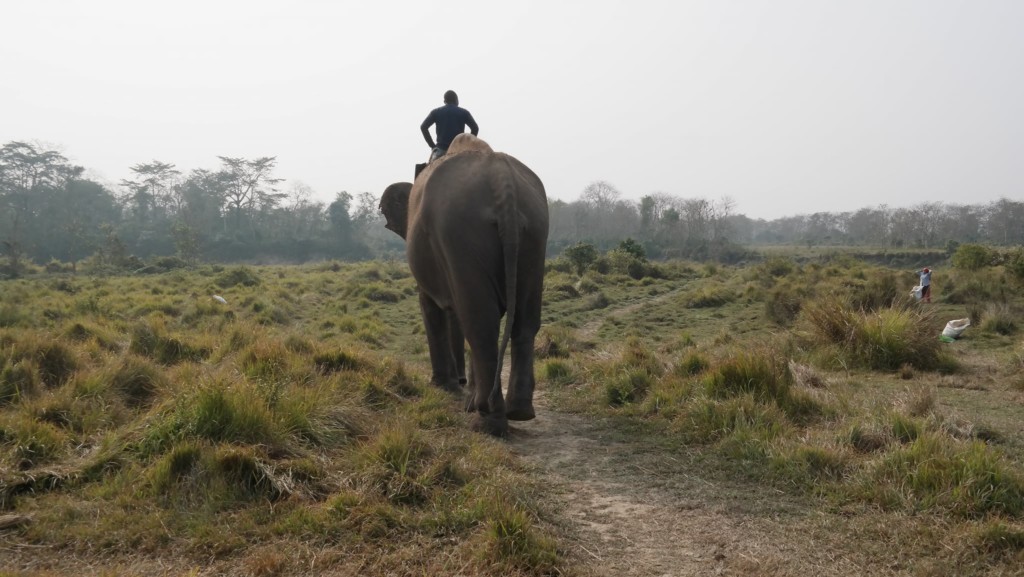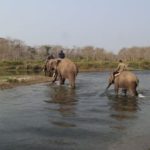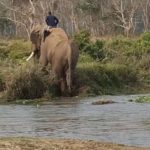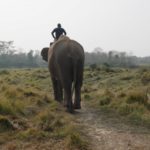Mahouts ride bareback on their elephant for safety reasons. Please read the post in its entirety to understand that anti poaching patrol elephants working in Chitwan National Park, Nepal, live a much different life than elephants living in tourist parks in other parts of Asia. We engage in welfare improvements wherever captive-elephants live.
Many of you ask why mahouts ride on their elephant on anti poaching patrol in Chitwan National Park, Nepal. You say, “set them free.”
Elephants are not domesticated, no matter how well trained, cooperative and well behaved they may be.
In the Western world elephant trainers position themselves on the ground. In Asia mahouts position themselves on the elephant’s back.
Being on top of the elephant, as opposed to being on the ground next to the elephant, provides a degree of protection from an aggressive elephant. Also, from this vantage point the mahout can more easily detect wildlife dangers and protect innocent bystanders who potentially could be harmed by the elephant.

Look to the right in this photo. There is a village woman collecting grass for her livestock. She is extremely vulnerable being on the ground. If elephants were allowed to wander unattended, people would be in danger.
In order to provide a shared environment where elephants are allowed access to the natural habitat of the Park, and humans can collect the resources required to sustain themselves, elephants are ridden.
The alternative is that elephants remain on chains, which is something none of us want, including the mahouts and the villagers who share this landscape.



